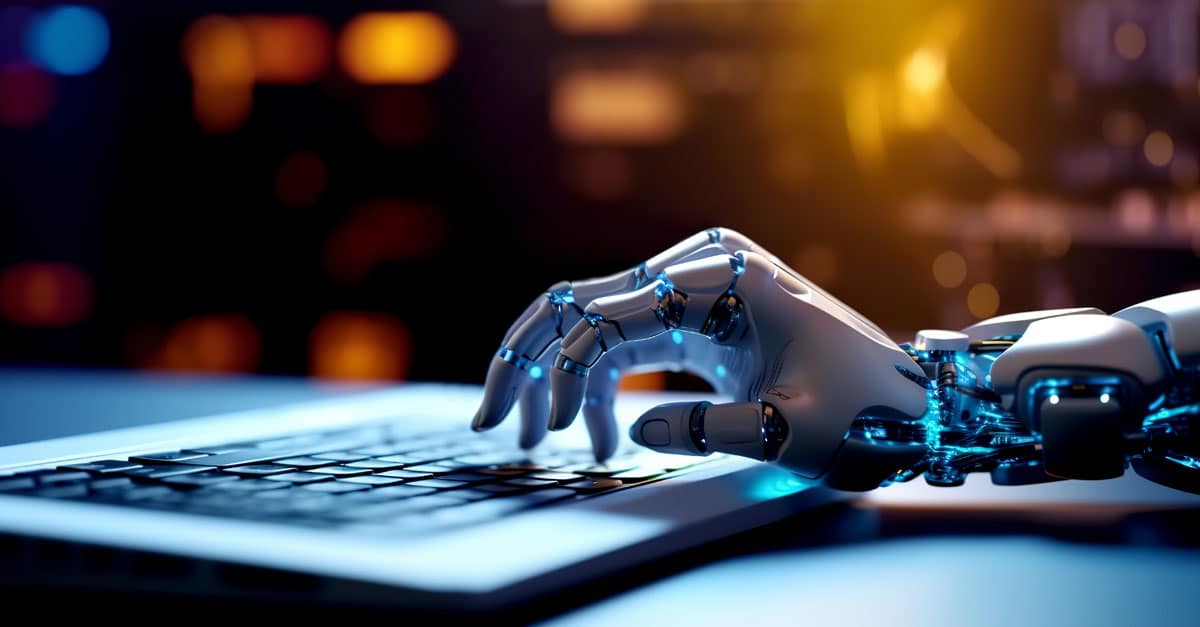However, the advent of innovative AI technologies is reducing the barriers to Industry 4.0’s progress. This game-changing technology is offering solutions that are altering the way many things are done.

A quick reminder: what is Industry 4.0?
Industry 4.0 means combining advanced digital technologies with manufacturing and industrial processes. This will lead to smart workplaces and new ways of making things. It brings together cutting-edge technologies like AI, big data, robots, and automation, as well as industrial IoT networks. Industry 4.0’s main goal is to change the way things are made by increasing output, efficiency, and flexibility and making it easier to make smart decisions and make changes that fit your needs in the supply chain.
The Fourth Industrial Revolution is where the idea for Industry 4.0 came from. Three major historical events called “industrial revolutions” changed the way things were made and how people worked. The development of the steam engine started the First Industrial Revolution, which was a change from using people and animals to work to using machines to do precise engineering. The Second Industrial Revolution, which used electricity and oil as its fuel, gave rise to the assembly line and mass production.
In the middle of the 20th century, computers, factory automation, and the first steps toward robots were some of the things that marked the start of the Third Industrial Revolution. This was also the time when computerized methods for collecting and analyzing data started to be used.
Elevate Your Wealth Game: Empowering UHNWIs for Simplified Asset Management. Altoo Platform Preview
We are now in the Fourth Industrial Revolution, also known as Industry 4.0, and information is now an important part of making things. AI makes it possible to combine huge amounts of real-time data from many different business areas. Industry 4.0 doesn’t depend on just one technology; instead, it works best when many systems, tools, and new ideas work together smoothly. AI is being used to analyse, predict, understand, and gain insights for a smarter and more efficient industrial landscape.

Generative AI is transforming the way factories work
Generative AI is transforming the way industries operate, particularly with its co-pilot mode, which is designed to increase operational stability and overall equipment effectiveness (OEE). The generative AI co-pilot collaborates with predictive maintenance technologies to provide more effective and proactive measures to reduce unplanned downtime. By automatically inspecting data logs, this system reduces the average time it takes to correct anything. This reduces batch-hold times and incidents.
By utilising natural language skills, generative AI enables self-service analytics and data democratisation. This allows staff to easily go through complex production logs without having to know a lot about technology. More individuals sharing data makes it simpler to discover problems and conduct operations more effectively, which benefits both workers and engineers.
Safety, Compliance, and Innovative Concepts
Generative AI is an important aspect in improving manufacturing quality control, raising safety standards, and making it easier to create tailored training tools. It provides workers with various learning methods, which reduces hazards and increases safety compliance. It significantly reduces errors and manufacturing costs by providing quality control reports and automating procedures.
Implementations of GenAI are affecting the commercial sector.
Using genAI is ushering in a new age in numerous sectors, from vehicle design to building design. For example, Hyundai’s creative campaign “Open for Imagination” employs genAI to provide consumers with a one-of-a-kind digital experience by allowing them to design their own outdoor surroundings. Another example of how technology may be utilised to make things more efficient and environmentally friendly is ABB’s agreement with Microsoft to bring GenAI features to their industrial analytics and AI package.
Shell’s use of GenAI in deep-sea research also demonstrates how the technology may be used to enhance procedures and discover new resources, sparking fresh ideas in established sectors.
According to Saurabh Daga, Associate Project Manager of Disruptive Tech at GlobalData, genAI is the greatest approach for intelligence and business to collaborate. It says that its power to transform things will result in new levels of creativity and efficiency.
With this new technology, industrial processes might be changed, ushering in a new era of innovative solutions and ushering in Industry 4.0. GenAI is becoming more prevalent, and its impacts are predicted to transform many industries and make the future more innovative and sustainable.









